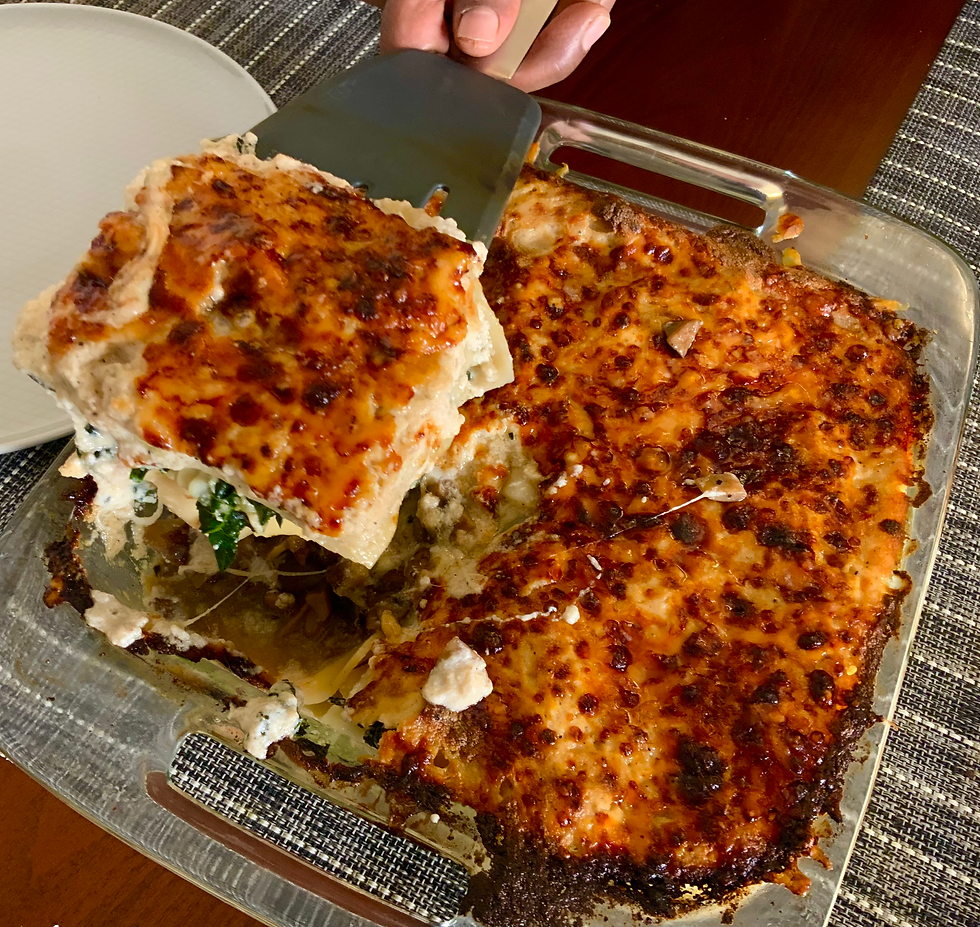Hyderabadi eggplant curry (Bhagare baigan)
- kzafarullah

- Apr 5, 2023
- 3 min read
Updated: Nov 17, 2025
When we think of Hyderabadi cuisine, Biryani pops to mind. But several other dishes are also iconic, coming to this blog soon, and Bhagare baingan is one of these classics. This dish arrived with the Mughals and is a legacy of the importance of eggplant in Muslim culture. Although this dish is strongly associated with the Mughal influence on the cuisine of this region, this dish is, in reality, a perfect merging of Mughal and Rayalseema cuisine. Poppy seeds travelled with the Mughal invaders and blended with tamarind, peanuts, chillies and coconut from the local Deccan kitchens to make this absolutely stunning dish.
I chose to make this dish healthy, with no floating layers of oil, no more fried eggplant pieces, and a stunning contemporary presentation without giving up on the flavours. The dish is slow-cooked; this is the essence of bringing the flavours together, not the layers of oil, as is believed.
This is a complex flavour profile. The sourness from the tamarind, spice from the chillies, and nuttiness and richness from the coconut, sesame, and poppy seeds come together beautifully. The sauce should be bold and packed with flavour. The sauce should carry the dish, and the eggplants are just for the great photograph.
Pratibha Karan started her career as an IAS officer and migrated to authoring cookbooks after a successful career. She has published several cookbooks, and her work as the Secretary of the Ministry of Food Processing prepared her for this new role. This cookbook is her opus on Nawabi Hyderabadi cuisine. She brings to your table the distinct dishes of the era and culture. From the classic Dum ka biryani to the other lesser-known dishes she has resurrected, this book is filled with recipes that shine on the table.
For more recipes from this book, click here.


Ingredients:
1/2 cup oil
3 onions, thinly sliced
5 tablespoons coriander seeds
3 tablespoons sesame seeds
1/4 cup roasted peanuts
3 tablespoons desiccated coconut
4-5 tablespoons water
1 onion, finely diced
2 tablespoons ginger-garlic paste
2 teaspoons chilli powder, or to taste
1/2 teaspoon turmeric
Salt, to taste
2 teaspoons cumin seeds
1/2 teaspoon fenugreek seeds
12 curry leaves
2 tablespoons tamarind extract
4 cups water
6 baby eggplants
4 cups water
Juice of 1 lime
Method:
Cut the eggplants into quarters, stopping at the base to keep them whole. Add them to the water with lime juice so they do not discolour.
Heat the oil, then fry the onions on medium-low heat until dark brown and caramelised. Drain on paper napkins and allow to cool completely.
Dry-roast the coriander, sesame, peanuts, and desiccated coconut separately until each is aromatic and lightly coloured. Then, cool completely.
Add the fried onions, roasted spices, and half the peanuts to a small blender with 3-4 tablespoons of water and blitz to a smooth paste. Add just enough water to puree the ingredients. Add the remaining peanuts and pulse until a coarse peanut mix with some bite forms.
Heat the remaining oil and add the cumin, fenugreek seeds, and curry leaves. sauté for 10 seconds. Add the remaining onion and fry on medium-low heat until it is richly browned. Add the ginger-garlic paste and cook for an additional minute until the ginger no longer smells raw.
Add the tamarind and cook for an additional minute. Add the water and eggplants and bring the pot to a boil. Cook on low heat, covered, for 20 minutes. Stir the curry occasionally so the spices do not stick to the bottom of the pot and burn. Make sure there are always enough liquids in the pot.
The eggplants should be very soft and cooked entirely at the end of the cooking time. The oil should have pooled generously and covered the top of the curry. If not, open the pot and cook for 4-5 minutes, stirring often—taste for salt and spice. The curry should be tangy and robust.
Serve at room temperature with bread or rice.














